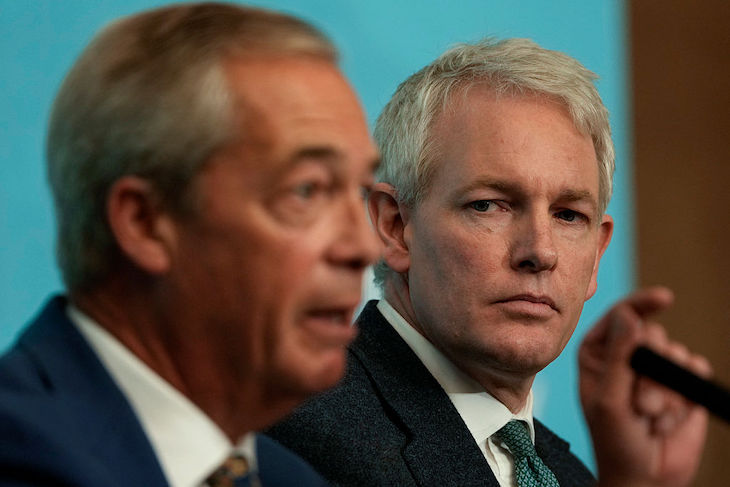It’s been widely – and rightly – said that Danny Kruger’s defection to Reform is a highly significant moment, both for his new party and for the Conservatives. But perhaps the most interesting contention he has made in explaining his move is that the Conservative Party “is over”.
A more likely outcome is that while the Tories are unable to recover, they also refuse to collapse so completely that they become irrelevant
It certainly seems inconceivable, as Kruger said, that the Tories could win the next election (although the last few years should have taught us that nothing is inconceivable in politics: Jeremy Corbyn as leader of the Labour party, anyone?). If movements in the polls since last year are any sort of guide to what will happen at the next election, there seems more likelihood that the Tories will lose seats than gain any – much like the Canadian Conservative Party in 1993, which was reduced to just two seats in parliament.
What happened in Canada between that 1993 rout and the 2006 election offers a possible preview of what may happen here, given some of the parallels. The most striking is another aspect of that 1993 election: the emergence and success of Canada’s Reform Party.
This split on the right in 1993 allowed the unpopular Liberal government to hold on to power, which is what many think will happen here at the next election. But if one takes the Canadian story as a parallel further into the future, the good news for the right is that a ‘Unite the Right’ movement succeeded and the two parties merged (although in reality Reform gobbled up the remaining Tories). And that led to the brilliant and successful premiership of Stephen Harper.
The bad news, however, is that it took them ten years to come together, letting the Liberals stay in power during that time. So the first question that needs to be asked in a British context is how low the Tories will have to sink before a similar Unite the Right movement takes off here. The second is whether the next election will see Labour sneak home because of a divided opposition, or if – as is certainly possible – Reform makes sufficient headway to win on its own.
Just as our Reform party grew out of the feeling that the Conservatives had lost their way, so the Canadian version emerged from disenchantment with Brian Mulroney’s Conservatives. But one difference from our experience (at least so far) is that the Conservatives did regain some support after their 1993 disaster, so that by the 1997 both it and Reform secured 19 per cent of the vote. Reform won 60 seats and the Conservatives 20. It seemed more than possible that had they fought as one party, they would have pushed the Liberals out of office.
With hindsight, a merger – or even an electoral pact between the two parties – seems obvious. But many of the same issues that mitigate against that here were in play. Most importantly, voters were not interchangeable. Just as Reform here is making great headway among Labour voters and a pact with the Conservatives could damage that, so in Canada there was a strong view that the two parties were not merely different wings of the conservative movement but had different philosophies, with the populist Reform agenda sitting ill at ease with the Conservative’s approach. Sounds familiar?
And just as Nigel Farage appears to be reluctant to ‘give up’ some of his own success as Reform leader to work with the Conservatives – and stresses that Reform is not simply the Conservative Party Mark II but a new movement altogether which intends to destroy the Conservatives – so the Canadian Reform leader, Preston Manning, saw Reform as a new populist party that was not Conservative as such. But after a series of personality and political clashes and false starts, eventually electoral sense prevailed and a new merged party was formed, which under Stephen Harper’s leadership was able to oust the Liberals in 2006.
It may be that comparisons with Canada will become pointless. As the polls now stand, the only direction of travel here is towards greater support for Reform and a further collapse of the Conservative vote. Reform may have no need of the Conservative Party to win power.
But a more likely outcome, surely, is that while the Tories are unable to recover, they also refuse to collapse so completely that they become irrelevant. That will present Nigel Farage and anyone concerned with replacing the Labour government with two key questions: are you willing to do what it takes to offer voters a united opposition, even if only in the form of an electoral pact and a subsequent coalition? Or would you rather see a second Labour term?







Comments